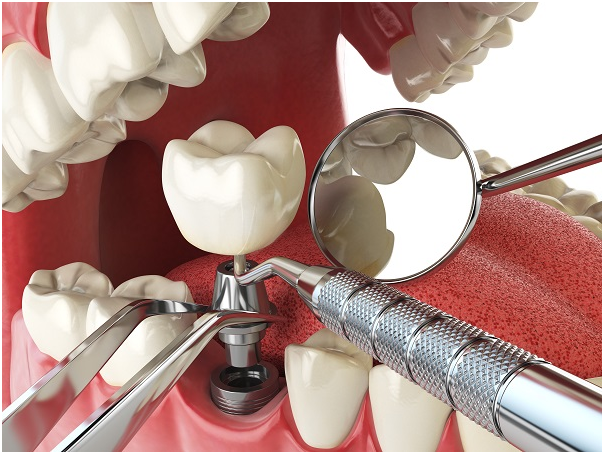Alternative Options to a Dental Implant
While dental implants are considered a good solution for many people to combat tooth loss, there are some instances where they are not the best solution, or where they are unable to be installed. In these cases, there are other alternatives for tooth replacement, though they are not as permanent as an implant. Other options include a bridge, a partial denture, or a full denture. According to the statistics published by 6006 Yonge Dental Implant Center, more than 96 percent of dental implant surgeries are performed successfully. However, some may still prefer other treatment options.

Dental Bridge
Where a few teeth are lost or extracted and there is a gap left, a dental bridge can provide replacements. These are created by forming a crown to cap the tooth on each side of the gap, and a crown for each missing tooth. The outer crowns are attached to the teeth with a bonding material that aligns the filler crowns to bridge the gap and remain supported by the remaining teeth.
One dental bridge can replace one tooth or up to one side of the teeth either on the bottom or the top, provided there is a tooth remaining at the back of the mouth to support the bridge and a tooth at the front of the mouth to support it.
Partial Denture
A partial denture functions like a dental bridge, except it is not permanent and is removed for cleaning then placed back in the mouth. These are not adhered to the tooth beneath but rest over them and against the gums. This is a simple solution to create the appearance of a full set of teeth with no filing or bonding to the healthy teeth.
When are Alternatives Required?
Alternatives to a dental implant are chosen when a dental implant is not suitable. This occurs when there is a financial limitation, as not all dental insurance will cover the cost of a dental implant, either in full or part. A financial limitation can cause an alternative to be considered, and a bridge is often covered by insurance or a more affordable option for those who have to pay out of pocket for their dental care.

Where the bone of the jaw is deteriorated and unable to support an implant, alternatives must be considered. The dental implant post must fuse with the jawbone to create a permanent support for the teeth, and it must be able to withstand the force of regular chewing and regular use of teeth. If the bone is unable to support regular use of the teeth or if it is unable to heal around the post, then an implant will not be possible.
People who are highly prone to infections or who have a lowered immune system may find they are not the best candidate for dental implants. The risk of an infection is that it can spread to the face and even into the blood, and for those with a compromised immune system it can lead to hospitalization.
In situations where a dental implant will not be properly supported, when the bone structure is not powerful enough to support the implant, or where the risk of infection or complication is too much, it may be necessary to consider other options. Alternatives include a bridge installed permanently within the mouth or a denture that is removed for cleaning and then placed bath in the mouth.

